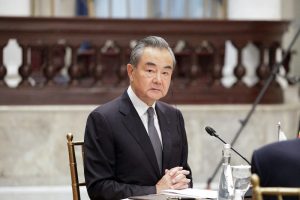(ATF) China’s government is promoting bond-financed infrastructure projects as a way to help the private sector build new homes and facilities for rapidly urbanising parts of the country.
The measure also appears aimed at deterring companies from buying loans from commercial banks, which are charging ever-higher interest rates as a liquidity crunch hits credit markets.
New guidelines issued by the National Development and Reform Commission (NDRC) encourage companies located in semi-rural or peripheral areas to apply for bond financing to fund new projects.
READ MORE: China determined to keep ‘normal’ monetary policy
The NDRC guidelines focus on new special corporate bonds that companies will be permitted to sell to fund specific projects, according to a report in the Economic Daily. It cited experts saying that bonds firms will be able to issue bonds to fund county-level industrial platforms, new “smart” infrastructure and the building of facilities that support environmental sanitation, municipal utilities and commercial supply chains. They’ll also be permitted for new cultural, tourism, and commercial projects.
Bonds for the “new-type urbanisation construction of county towns” are to be issued by market-oriented companies as legal entities, and must be applicable to counties and county-level cities, the NDRC said. Non-county-level government residential areas with a permanent population of around 100,000 will also be able to seek funding in this way.
Further, towns and districts at prefecture-level and above, and cities formed under the “county to district” and “city to district” policies since 2015 are also included under the guidelines.
No more than 50% of funds raised via bonds will be allowed to supplement working capital, and the raised funds used for project construction can be used to repay bank loans that have been directly used to fund construction of projects.
The initiative will enable enterprises with “excellent credit ratings” to issue this type of special corporate bond.
The cost of borrowing in China is rising as the central bank holds back on injecting more liquidity into the financial system fro fear of overheating a fragile recovery, the only major economy that’s managing to grow from the depths of the coronavirus downturn. The tightness means commercial banks have less money to buy bonds, undermining the government’s hopes of developing the nation’s credit markets.
CITIC Research said recent bond issuance had been weak and since May the cost of borrowing through fixed-income instruments had risen rapidly, while that on loans has remained stable.
Nevertheless, CITIC argues that commercial banks will increase investment in bonds for three reasons: First, the pace of credit supply is expected to slow, and the “crowding out” effect of loans on bond allocation will reduced. Second, after continuous adjustments, the bond market has become very cost-effective, and commercial banks’ enthusiasm for bond allocation is expected to usher in a wave of accelerated issuance. Thirdly, the policy thinking of reducing costs and transferring profits to entities also requires commercial banks to increase bond investment.






















